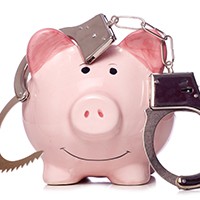Evelyn Jacks: A Slippery Slope – Should We Mess with Canadians’ High Voluntary Tax Compliance Rate?

In Canada, we have a tax system based on self-assessment and voluntary compliance. It works extremely well, considering how complex the topic is, with the overwhelming majority of individuals and corporations meeting their obligations on time.
It is exactly for these reasons that the proposed payment of a 15% finder’s fee to those who help the government identify extensive international tax fraud may set a worrisome precedent that could erode the CRA’s vision and values and with it, the principles we so happily comply with.
According to the Canada Revenue Agency’s Annual Report to Parliament 2011-2012, Canadians have an extraordinarily high rate of compliance when it comes to paying their taxes: 94% of individuals reported on time while 91% paid their taxes on time. In the case of corporations, almost all corporations filed their returns within 5 years; with 90% of corporations paying on time.
The overwhelming conclusion, highlighted in the report, is that the vast majority of Canadians understand the importance of responsible citizenship and the connection between a sustainable tax system and our quality of life here in Canada.
The underground economy in Canada, meanwhile has increased at a slower pace than the economy as a whole between 1992 and 2008, according to Statistics Canada. It was estimated at an upper limit of $36 billion in 2008, which is up 90% from 1992 – certainly on the service, a poor trend. But during the same period the nominal gross domestic product (GDP) more than double at 128%.
According to the report, the main reason that the underground economy increased more slowly was that industries that traditionally are involved in “under the table” activities represented a declining portion of the overall economy. This includes three significant sectors that accounted for 60% of the total value added of all underground activities: construction (30%), retail trade (16%) and accommodation and food services (12%).
There is no question that the underground economy hurts both the business community and taxpayers in general. In 1999 the Auditor General released a report on the matter and illustration how the underground economy hurts competition, illustrating that a worker’s take home pay can be increased by 30-40% when income taxes are not withheld at source and other payroll deductions are not made by the employer. It’s quite difficult for honest businesses to outbid businesses operation in the underground, and that’s not fair.
In 2011-2012, CRA collected about $419 billion in taxes and duties, identified over $14 billion in non-compliance. The 2012-2013 objective on non-compliance activities is to focus on higher risk cases, of which the international and large business category are the largest group, representing $5.6 billion or 40% of the non-compliance activities. Yet, this is still only 1% of all the taxes and duties collected by CRA.
A well-functioning tax and benefit system, to quote CRA’s annual report to parliament, is essential to have a healthy economy, a sustainable infrastructure and a strong democracy. It’s to our collective advantage to empower CRA to catch tax cheats.
But does the introduction of a finder’s fee compromise our admirable tax culture of voluntary compliance and self-assessment? What do you think? Please weigh in on our poll this month to voice your opinion.
It’s Your Money. Your Life. When there is tax leakage, everyone pays more for the incredible privilege of living in Canada. Be sure you do your part to encourage voluntary compliance by filing your family’s tax return by midnight April 30.
Evelyn Jacks is President of Knowledge Bureau and author of 50 books on tax and personal wealth management. She is also the founder and director of the Distinguished Advisor Conference (DAC). The theme of this year’s three day think tank in Ojai, CA Nov 10-13 will be “Back to the Future – Collaborative Wealth Management.” Follow Evelyn on Twitter at @EvelynJacks.